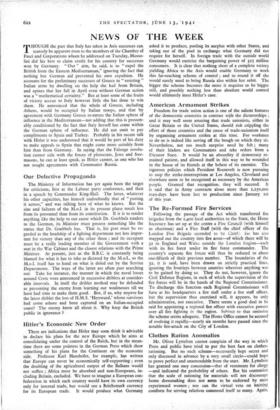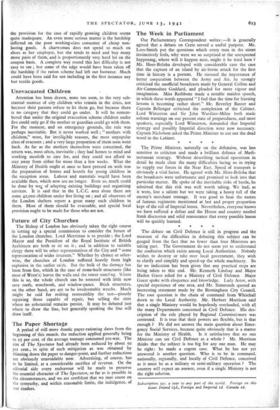Clothes Ration Anomalies
Mr. Oliver Lyttelton cannot complain of the way in which Press and public have tried to put the best face on clothes- rationing. But no such scheme—necessarily kept secret and only discussed in advance by a very small circle—could hope to prove perfect and unamendable from the start. Mr. Lyttelton has granted one easy concession—that of vestments for clergy —and indicated the probability of others. But his contention that the scale of rationing for materials will not discourage home dressmaking does not seem to be endorsed by most experienced women ; nor can the virtual veto on knitting comforts for serving relatives commend itself to many. Again, the provision for the case of rapidly growing children seems quite inadequate. An even more serious matter is the hardship inflicted on the poor working-class consumer of cheap non- lasting goods. A charwoman does not spend so much on shoes as her employer, but she tends to need and buy many more pairs of them, and is proportionately very hard hit on the coupon basis. A complete way round this last difficulty is not easy to see ; but some of the edge would have been taken off the hardship if the ration scheme had left out footwear. Much could have been said for not including in the first instance any but textile goods.



























 Previous page
Previous page